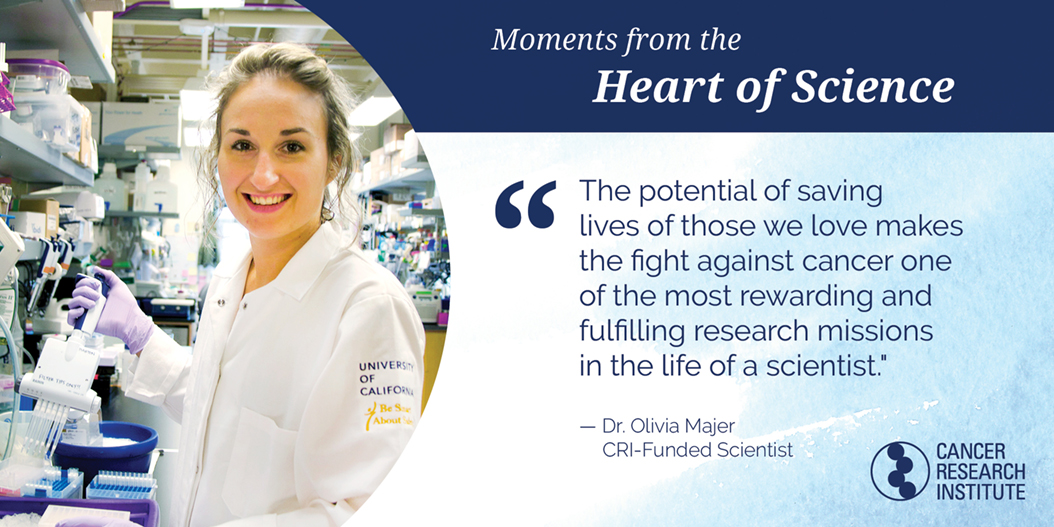Our innate immune system uses a group of surface receptors called Toll-like receptors (TLRs) to detect bacterial molecules. Once activated, TLRs can stimulate an inflammatory immune response, but if that inflammation becomes chronic, it can promote cancer development. To improve our understanding of how this process occurs, Dr. Majer is using a novel system that enables her to alter the activity of certain TLRs in mice and then characterize how this affects other signaling pathways and cancer development. This allows her to determine if increased activity in these TLRs is linked to cancer, and if so, which pathways are involved in promoting formation of these tumors. With this knowledge, preventive strategies could then be designed to detect and block these tumorigenic signals in at-risk human patients.
Cancer affects all of our lives. Every one of us knows someone suffering from cancer or has lost someone from it. The potential of saving lives of those we love makes the fight for cancer one of the most rewarding and fulfilling research missions in the life of a scientist.

Projects and Grants
Dysregulated Toll-like receptor responses as an oncogenic driver
University of California, Berkeley | All Cancers, Lymphoma | 2015 | Gregory M. Barton, Ph.D.
Let's spread the word about Immunotherapy! Click to share this page with your community.